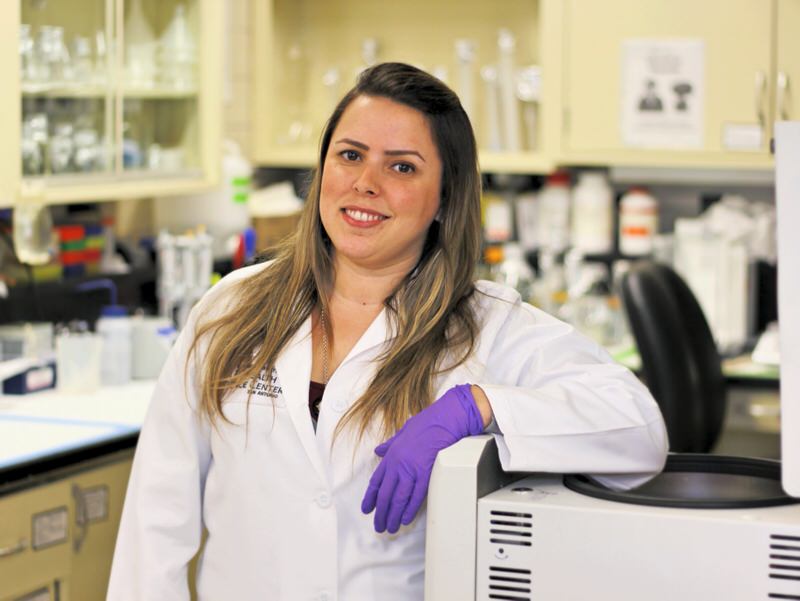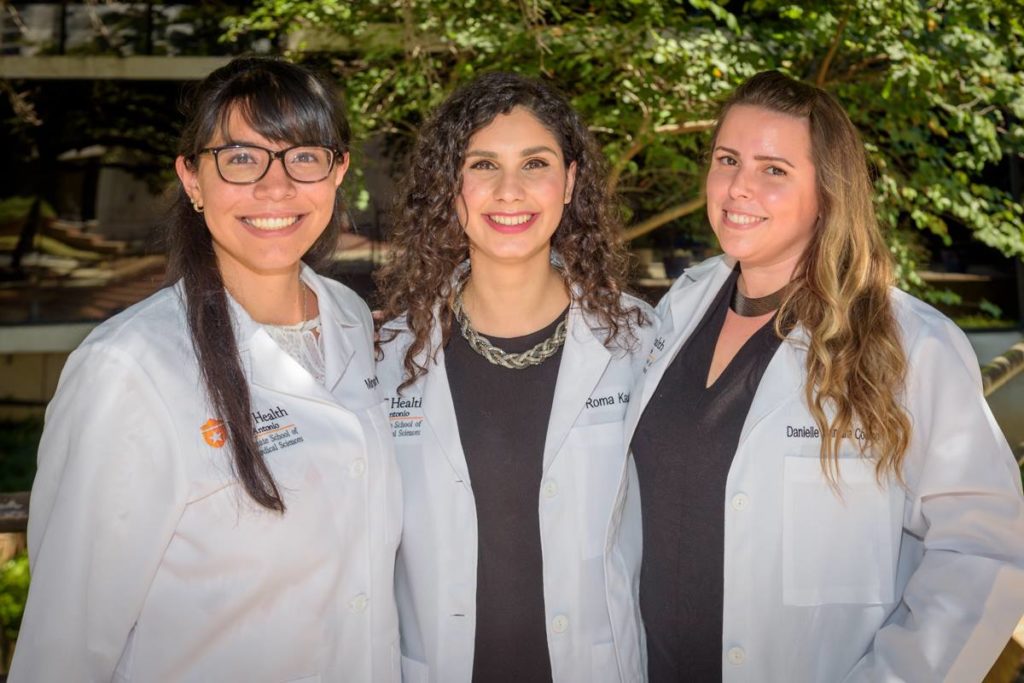Final Words: 7 Questions with Autism Researcher Danielle Santana Coelho
 1) Your name, program, dissertation title.
1) Your name, program, dissertation title.
Danielle Santana Coelho, Neuroscience Discipline, Integrated Biomedical Sciences Graduate Program. Investigating the pathophysiology of maternal inflammation-induced autistic-like phenotype: From rodents to primates. Her mentor was Jason O’Connor, Ph.D.
2) Please tell me about yourself, why did you pick UT Health San Antonio, and your program.
I am originally from Brazil, and after my master’s degree, I decided to come to the United States to pursue my Ph.D. I was impressed by the collaborative environment and multidisciplinary nature of the program. Additionally, there were laboratories that worked with disorders that I am interested in, such as schizophrenia and autism. Thus, it seemed like the perfect place to do my Ph.D at.
3) What has been the highlight of graduate school so far? Have you won any awards or have there been any achievements you’ve been proud of?
The highlights of graduate school were the opportunities I had to work with a subject that I am interested in, which is autism spectrum disorder (ASD). Also, working with non-human primates was a unique and amazing opportunity that I feel really blessed for being able to have. Additionally, my Ph.D. research enabled me to win a trainee scholar award from the Psychoneuroimmunology Research Society (PNIRS). I have had the honor to be selected to do oral presentations of my research at the PNRIS Meeting in 2017, at the Society of Neuroscience Annual Meeting, and at the Marmoset Bioscience Symposium in 2019. However, I do have to say that the achievement I am prouder of is to have been able to graduate during this pandemic. The last months before defending your dissertation are always challenging, but doing so during a pandemic did add some extra challenge to it.

4) Please provide a few sentences summarizing your dissertation. What was the experience like for you?
My dissertation was focused on investigating how inflammation during pregnancy can lead to the development of autism in the offspring. In order to do that I have worked in several projects such as interaction between gene and environment, the role of metabolic routes during development in response to inflammation and development of a maternal immune activation model in non-human primates. It was exciting and challenging to work with different species during my Ph.D. But I believe this experience gave me a broader view of the translatability of science.
5) Why are you passionate about your research topic? How did you first become interested in it?
I am passionate about autism because it is such a complex and interesting disorder. There is still a lot that it is unknown, especially about what causes it. Although there are several mutations that have been linked to autism, environmental factors can also play a role, and this is what interests me the most. The first time I became interested in autism was during my master’s degree. I had to give a talk in a high school about disorders that affect children to bring awareness and decrease the prejudice against children that present developmental disorders. That was the first time that I met an autistic child, and since then, I have been interested in autism. The fact that the same disorder can present such a diversity of phenotypes really intrigues me. Also, the fact that some high functioning individuals are so brilliant in specific areas while for other areas they present difficulties is fascinating. Understanding what brain areas, when disrupted, are responsible or involved in the development of the specific phenotypes in ASD is what drives me to study this disorder. By identifying the mechanisms by which prenatal insults disrupt neurodevelopment, we will be able to develop therapies and treatments to improve the lives of individuals with autism that present severe deficits.

6) What’s next?
After graduating, I have joined the laboratory of Dr. Joaquin Lugo at Baylor University to continue my training. Here as a postdoctoral fellow, I will be investigating the comorbidity between autism and epilepsy, which affects roughly up to 30 percent of autistic individuals.
7) Any advice for your fellow graduate students?
My advice is to believe in yourself and keep going! I know it is hard, frustrating, and stressful sometimes. But you can do it! Perseverance is key! Especially now, with a pandemic, it is a time of high anxiety. But things will work out in the end. Take care of yourself so you can keep doing the great work you have been doing so far.
Interested in connecting with Dani? Find her on gsbsalumni.com.

